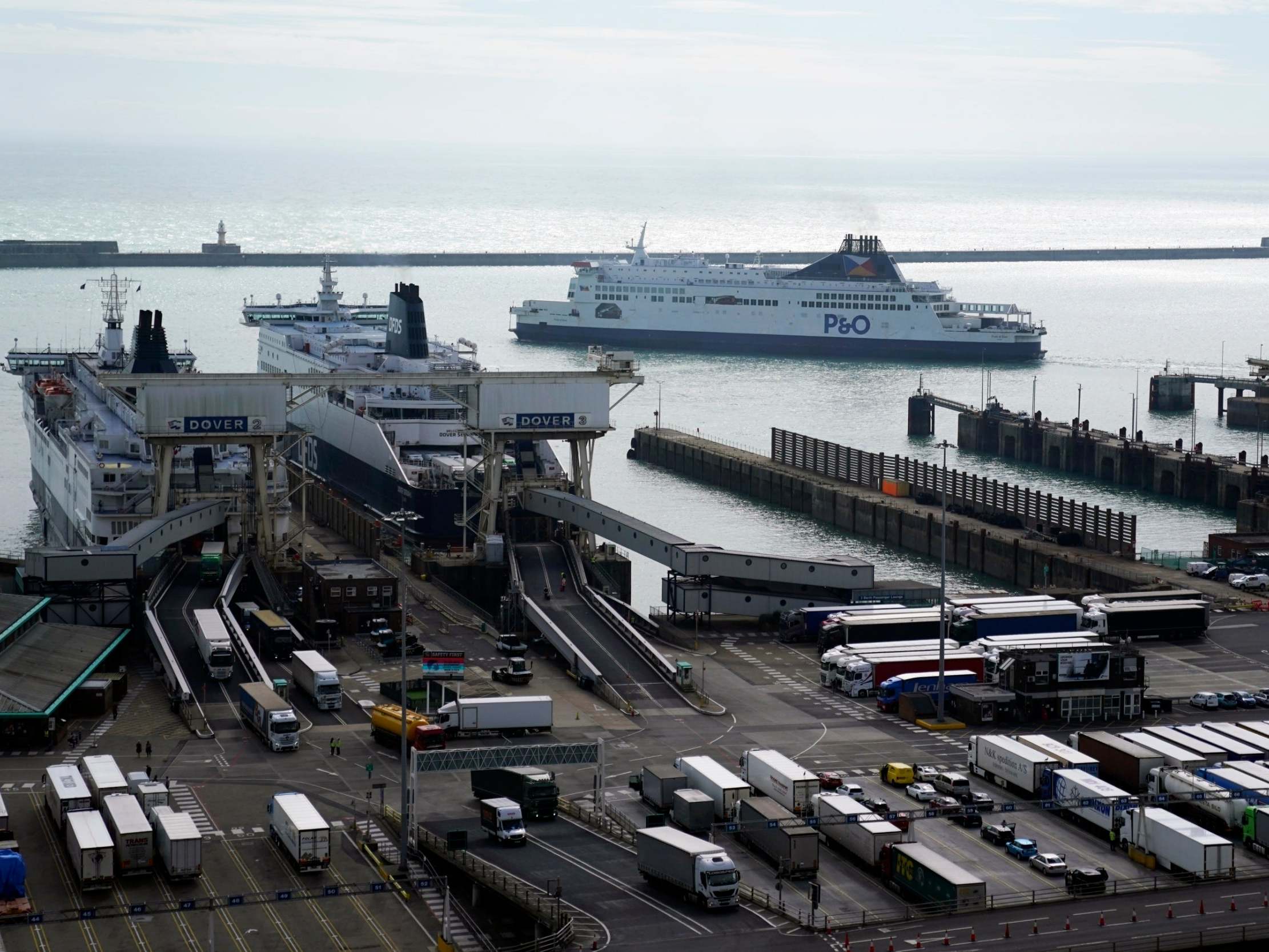Brexit: Government again delays key border checks on EU imports
Extension comes after warnings infrastructure for new checks would not be ready in time

Your support helps us to tell the story
From reproductive rights to climate change to Big Tech, The Independent is on the ground when the story is developing. Whether it's investigating the financials of Elon Musk's pro-Trump PAC or producing our latest documentary, 'The A Word', which shines a light on the American women fighting for reproductive rights, we know how important it is to parse out the facts from the messaging.
At such a critical moment in US history, we need reporters on the ground. Your donation allows us to keep sending journalists to speak to both sides of the story.
The Independent is trusted by Americans across the entire political spectrum. And unlike many other quality news outlets, we choose not to lock Americans out of our reporting and analysis with paywalls. We believe quality journalism should be available to everyone, paid for by those who can afford it.
Your support makes all the difference.The government has announced that it will delay a host of border red tape for EU imports from October and January next year until July 2022.
These include physical checks on food and other animal-related products which were due in January next year. It comes after The Independent reported that the necessary infrastructure would not be ready in time.
As late as Thursday last week, the government was suggesting that businesses should still prepare for the already delayed deadlines for new paperwork from October and physical checks in January.
At a meeting with officials last week, businesses had expected a delay to be confirmed, but that did not happen. Industry lobby group The Food and Drink Federation (FDF) said that as late as yesterday, their members were being told to prepare for the – now shifted – October and January deadlines.
The government said on Tuesday that new export health certificates, which were originally due to be required from October would now not come into force in July next year. Physical checks on products of animal origin, including food and plants, which require Border Control Posts, will now not be enforced until July next year too, after they were meant to imposed in January, according to previous government guidance. Other security-focused checks will now also be delayed until July 2022.
The move from government has provoked a mixed reaction from industry. While some have invested significant resources in the effort to prepare for the deadlines, they also regarded them as likely to prove unenforceable, citing IT, infrastructure inadequacies and confused advice from government. There is also an asymmetry between EU imports and UK exports to the EU.
The EU imposed full checks from 1 January 2021. Meanwhile, the government’s latest step marks the third delay of a host of checks. This means that EU exporters to the UK have an advantage over those exporting goods in the other direction.
Ian Wright, chief executive of the FDF, said that many manufacturers who invested funds in preparation will be “dismayed” by the new delays a little over two weeks before the first changes were due to be imposed.
“Now, with just 17 days to go, the rug has been pulled. This move penalises those who followed Government advice and rewards those who ignored it. As recently as yesterday, officials assured us that import checks would be implemented as planned.”
He added: “The repeated failure to implement full UK border controls on EU imports since 1 January 2021 undermines trust and confidence among businesses. Worse, it actually helps the UK’s competitors. The asymmetric nature of border controls facing exports and imports distorts the market and places many UK producers at a competitive disadvantage with EU producers.”
Stressed supply chains will not be fixed by delaying border checks alone, the FDF and other industry groups have warned. They are repeating calls to reconsider a temporary visa scheme that could ease an acute shortage of heavy goods vehicle drivers. The FDF has also called for government financial support for businesses who prepared for the import control deadlines following government assurances, only for the checks and paperwork to be further delayed.
Sean McGuire, Europe director at business lobbying group the Confederation of British Industry, said the step would ease some pressure on supply chains ahead of Christmas, but the overall impact of the delays could be “fleeting”.
Mr McGuire called on both sides to give “fresh consideration” to a “bespoke veterinary agreement, which could avoid the majority of checks and reflect the unique nature of trade between the UK and the EU”
Join our commenting forum
Join thought-provoking conversations, follow other Independent readers and see their replies
Comments